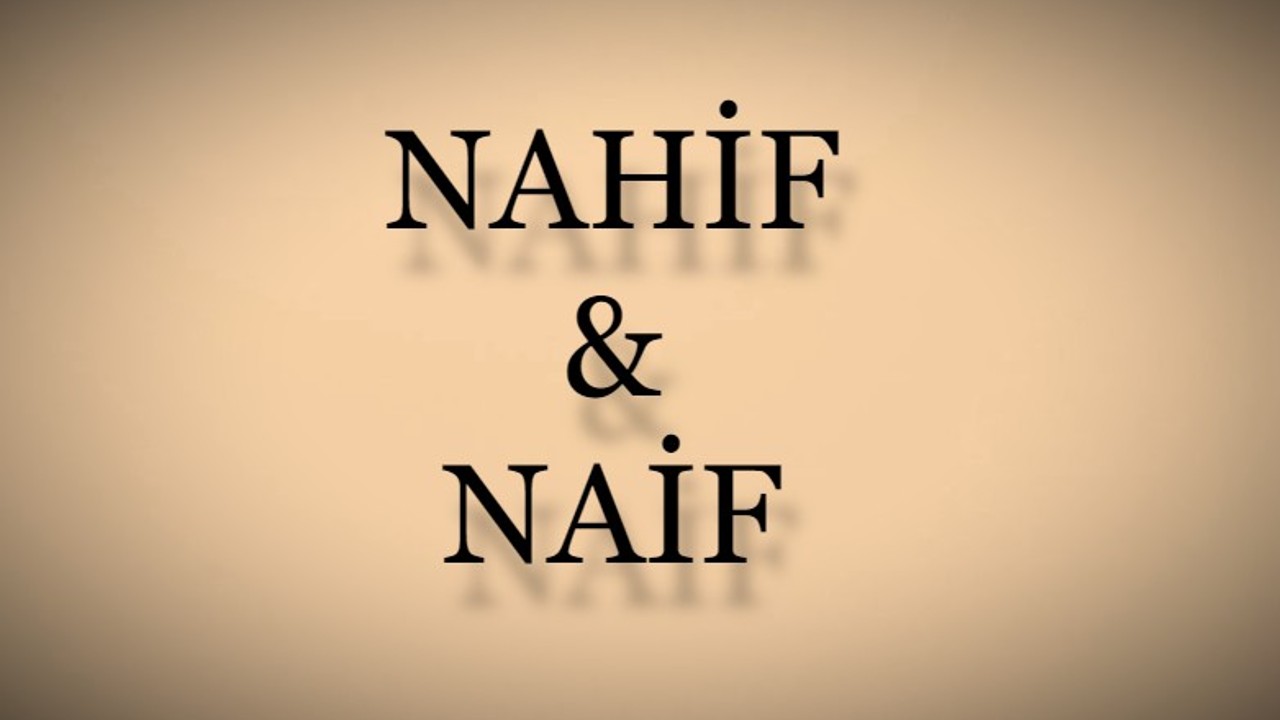When you first meet a nice person, you think how naive he is. Are you sure? That person is actually naive. The words naive and naive, which many people are likely to hear for the first time, are often confused because they are phonetically similar. Let’s take a closer look at what naive means, what naive means, what are the differences.
Turkish, which has a history of thousands of years, has been enriched by being influenced by almost every language of the world over the years and has become what we use today. Language is alive and will develop further, but some words have a special place. For example, this is the best adjective to describe how naive a kind person is. Is that so? He’s a really nice person naive or naive? No typos, naive.
Many people may be hearing the word nahif for the first time, because they are phonetically similar, so we have actually attributed the meaning of the word naif to the word naif and used it in this way. However, the word naive also has a meaning on its own, and if we examine it carefully, there is actually quite a difference between naive and naive. Bride What does naive mean, what does naive mean, let’s take a closer look Let’s take a closer look at the differences between these two words that are constantly confused.
What does nahif mean according to the Turkish Language Association?
- Arabic naḥīf
- adjective, stale Subtle, sensitive, sensitive.
- adjective, stale Weak, feeble, frail:
“His hands are so thin, naive fingers as if made of wishbones…” – Peyami Safa
What does naive mean according to the Turkish Language Association?
- naïve in french
- adjective Pure, inexperienced:
“He wasn’t too naive to face the presence of women he could envy.” – Reha Magden - name Self-taught artist of fine arts, especially painting, or his work.
- Ishimmer Painting created by self-taught artists with a natural talent for plastic art.
- adjective awkwardly made:
“This quintessential Istanbul master adorned his articles and novels with his own naive pictures.” – Haldun Taner
- adjective Pure, inexperienced:

The etymological origin of the word naive:
The word naive is etymologically is of french origin and passed into Turkish through this language. If we examine its roots a little more, French naive and English naive We can see that it corresponds to the words. It is generally used in the field of painting. However, since it has more than one meaning, it can have one of these meanings depending on the sentence structure it is used in.
Etymological origin of the word nahif:
The word nahif is etymologically is of Arabic origin and passed into Turkish through this language. It is widely misused as it is phonetically similar to the word naive. It is seen that it is used incorrectly in daily life, as well as in many works of the new period.
Differences between naive and naif words:

When we look at the meanings explained by the Turkish Language Association, the words naif and naif are actually It is clear that they are two different words. While the word naif has the meaning of inexperienced and amateur, the word naif actually carries the subtle, emotional and sensitive meanings that we attribute to the word naif in daily life.
In fact, when viewed from the perspective of a literary man, it is seen that there is a subtle similarity in meaning between the two words. well The inexperienced person can also be sensitive. Likewise, it makes sense for a sensitive person to be inexperienced. In other words, these two words, which are very similar in spelling and phonetically, are not very far in meaning.
However, it would not be correct to say that naive and naive mean the same thing. In fact, if we look at the example of Haldun Taner given by the Turkish Language Association, the word naif means It can even be considered a term for the art of painting. Naif is a beautiful adjective. The example of Peyami Safa given by the Turkish Language Association reminds us of a forgotten meaning of this word.
Why are the words naive and naive confused?
In fact, it would not be right to say that the words naive and naive are confused. Because let’s admit Since most of us now have such a word as naive, And we learned that the word naive has a completely different meaning. So it’s not a mix-up, it’s a complete misinformation.
Details of the historical process are unknown, but spelling and phonetically quite similar. these two words melted in time and only naive remained in the middle. If we look at it phonetically, it is much easier to say naive than to say naive. However, now that we know, we can start using these two beautiful words correctly, at least while writing.
It is often confused because of its phonetic similarity. What does naive mean, what are the differences? We answered the frequently asked questions and talked about the details you need to know about these two words. You can share other frequently confused words such as naive and naif in the comments.
